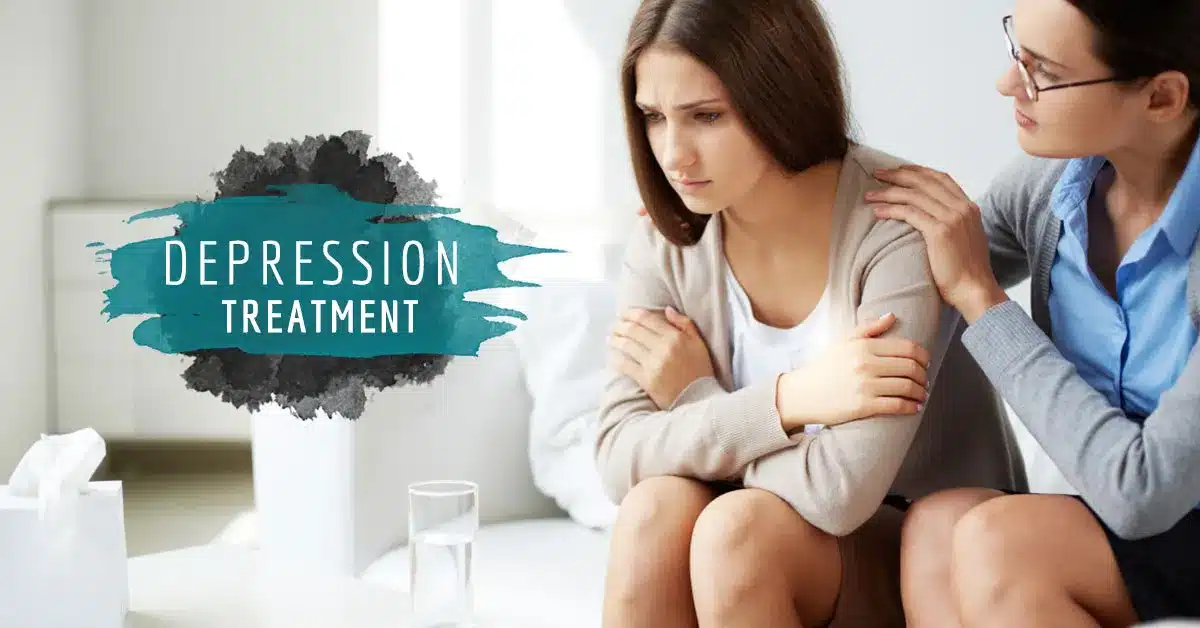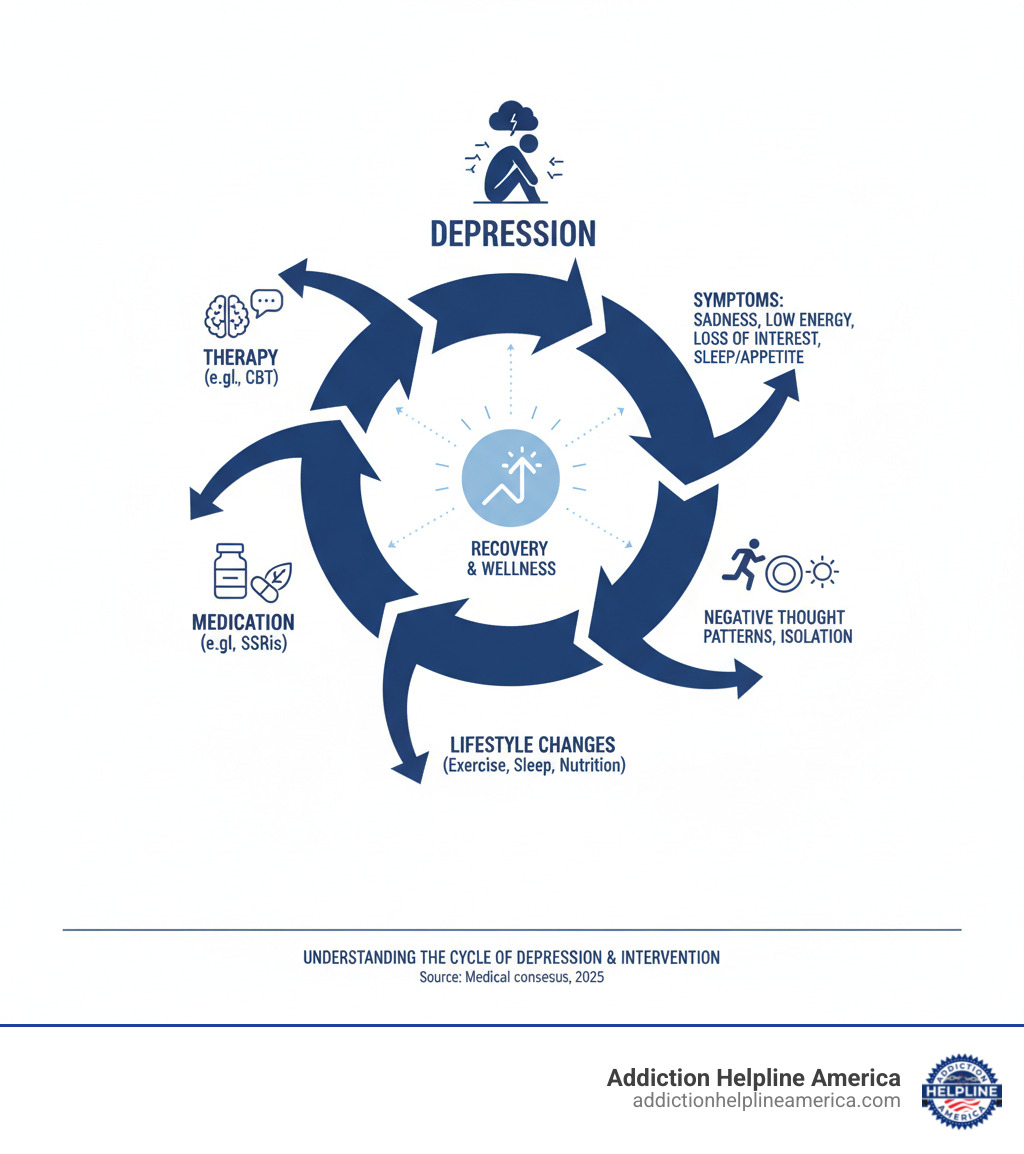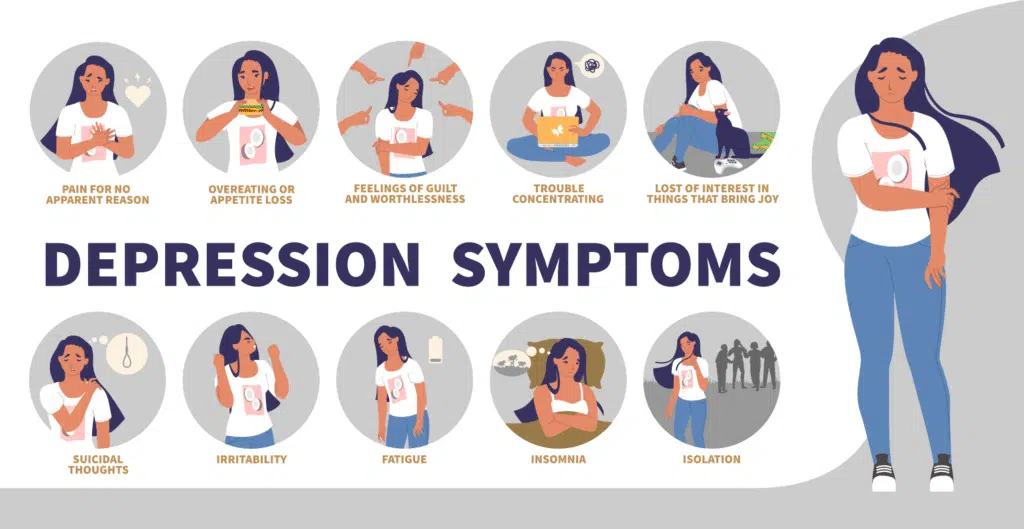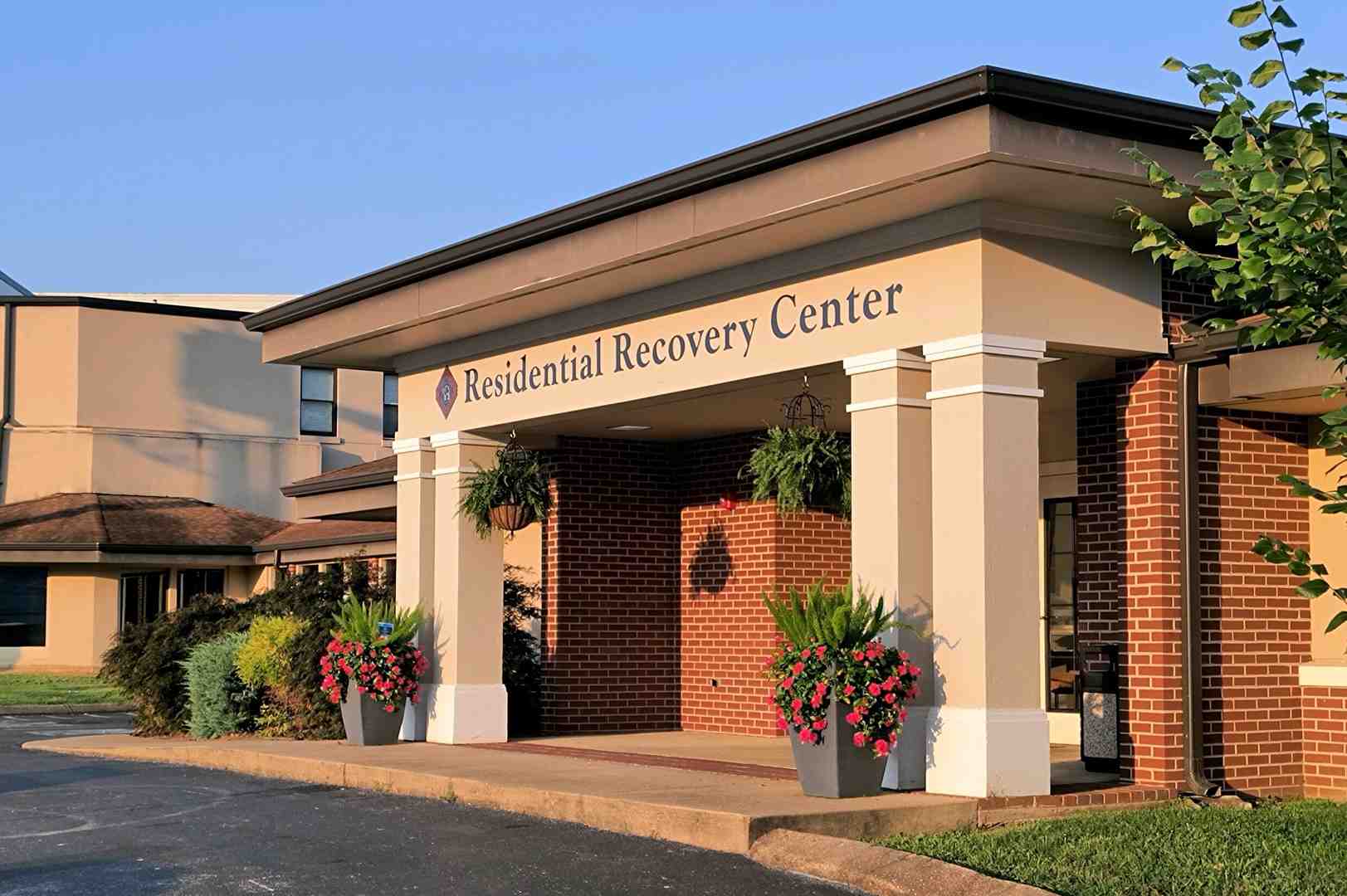
Understanding Depression: A Treatable Medical Condition
Depression Treatment includes a range of proven approaches—psychotherapy, medication, lifestyle changes, and advanced procedures—that help millions recover from this serious but highly treatable condition. Depression is more than sadness; it’s a common and serious medical illness that affects how you feel, think, and act. Symptoms like persistent sadness, loss of interest, and changes in sleep or appetite can last for weeks or months without intervention.
Quick Overview of Depression Treatment Options:
| Treatment Type | Examples | Best For |
|---|---|---|
| Psychotherapy | CBT, IPT, Behavioral Activation | Most types of depression; first-line treatment |
| Medication | SSRIs, SNRIs, Atypical antidepressants | Moderate to severe depression |
| Lifestyle Changes | Exercise, sleep hygiene, nutrition | All levels; supportive of other treatments |
| Brain Stimulation | ECT, TMS, DBS | Treatment-resistant depression |
| Novel Therapies | Ketamine, Psilocybin (research) | Severe or treatment-resistant cases |
The hopeful truth is that approximately 80% to 90% of people with depression who seek treatment eventually respond well to it. More than 1 in 6 people in the U.S. will face depression in their lifetime, but effective help is available for all ages, from children to adults. The key is taking the first step toward getting help.
Recovery often involves a personalized combination of professional treatment and lifestyle changes. At Addiction Helpline America, we guide individuals and families through the complexities of Depression Treatment, connecting them with evidence-based care. Our experience shows that with the right support, recovery is not just possible—it’s probable.

Understanding Depression: Signs, Types, and Causes
Depression is a genuine medical condition—not a character flaw or something you can “snap out of.” Like diabetes or heart disease, it has real biological causes and requires proper treatment. Understanding what you’re dealing with is the first step toward effective Depression Treatment.
Call Now – Your Journey to Recovery Begins Today!

Take the first step towards a healthier life! Call now to connect with our compassionate team and start your recovery journey today. Your path to healing awaits!
Our recovery specialists are available 24/7 to provide support, and all calls are confidential and free. Reach out anytime – we’re here to help!
Recognizing the Signs and Symptoms
To be diagnosed with clinical depression, symptoms must be present for at least two weeks. They impact you emotionally, physically, and mentally.
- Emotional: Persistent sadness, emptiness, hopelessness, irritability, or excessive guilt. You may feel emotionally numb or cry more than usual.
- Physical: Constant fatigue, disrupted sleep (insomnia or oversleeping), significant appetite or weight changes, and unexplained aches or pains.
- Cognitive: Difficulty concentrating, remembering things, or making decisions. This mental fog can make daily tasks feel overwhelming.
- Behavioral: Withdrawing from friends and family (anhedonia), restlessness, or moving and speaking more slowly. In serious cases, thoughts of self-harm or suicide can emerge, which is a sign to seek immediate help. The CDC shows that suicidal thoughts among high school students increased from 2011 to 2021. If you or someone you know is in crisis, call or text the 988 Suicide & Crisis Lifeline.
The Different Types of Depression

Understanding the specific type of depression helps guide the most effective Depression Treatment approach.
- Major Depressive Disorder (MDD): The classic form of “clinical depression,” with severe symptoms that interfere with daily life.
- Persistent Depressive Disorder (PDD): A milder but chronic form of depression lasting at least two years.
- Bipolar Depression: Depressive episodes that alternate with periods of liftd mood (mania or hypomania).
- Seasonal Affective Disorder (SAD): Depression that occurs during fall and winter, often treated effectively with light therapy.
- Perinatal and Postpartum Depression: Affects women during pregnancy or after childbirth, requiring treatment for the well-being of both mother and baby.
- Premenstrual Dysphoric Disorder (PMDD): A severe form of PMS with debilitating mood symptoms before menstruation.
- Atypical Depression: Characterized by a temporary mood lift in response to positive events, increased appetite, and excessive sleep.
- Depression from Medical Conditions: Triggered by illnesses like hypothyroidism or heart disease.
What Causes Depression?
Depression rarely has a single cause; it’s usually a combination of factors.
- Brain Chemistry: Imbalances in neurotransmitters like serotonin and dopamine affect mood, sleep, and energy.
- Genetics: Having a close family member with depression increases your risk.
- Life Events: Trauma, chronic stress, grief, or major life changes can trigger depression.
- Medical Conditions: Chronic pain, heart disease, and other illnesses are often linked to depression.
- Medications: Some prescription drugs can cause depression as a side effect.
- Substance Use: Alcohol and drugs can worsen depression over time. Nearly a third of people with depression also have a substance use disorder, a combination we specialize in addressing at Addiction Helpline America.
A Comprehensive Guide to Depression Treatment
The path to recovery from depression is personal and often requires a combination of different approaches. Patience and flexibility are key to finding what works for you.
Diagnosis and Finding Professional Help
An accurate diagnosis is the foundation of effective Depression Treatment. A doctor will perform a physical exam and may order lab tests to rule out medical causes like a thyroid problem. A mental health professional will then conduct a psychiatric evaluation, comparing your symptoms to the criteria in the DSM-5 (Diagnostic and Statistical Manual of Mental Disorders). Your care team may include a primary care doctor, a psychiatrist (who can prescribe medication), and a psychologist or therapist for talk therapy.
Psychotherapy: The Power of Talk Therapy

Working with a trained professional is one of the most powerful tools in Depression Treatment. Common evidence-based approaches include:
- Cognitive Behavioral Therapy (CBT): Helps you identify and change negative thought patterns. Research confirms its effectiveness, showing it can be as helpful as medication.
- Behavioral Activation (BA): Focuses on increasing your engagement in positive and meaningful activities to counteract withdrawal. Research shows it is also highly effective.
- Interpersonal Therapy (IPT): Addresses how your relationships and social issues contribute to your depression.
- Psychodynamic Therapy: Explores how past experiences and unconscious patterns influence your current feelings.
- Psychoeducation: Your therapist will also educate you about depression, which empowers you to be an active participant in your recovery.
Medication for Depression Treatment
For moderate to severe depression, antidepressants can be essential. They work by helping to correct chemical imbalances in the brain related to mood.
- Common Types: The most common classes are SSRIs (like Prozac) and SNRIs (like Cymbalta). Atypical antidepressants (like Wellbutrin) work in unique ways. Older types like TCAs and MAOIs are also effective but often have more side effects.
- Side Effects: Initial side effects like nausea, headaches, or sleep issues often fade. Longer-term effects can include weight gain or sexual dysfunction. It’s crucial to discuss any side effects with your doctor, who can adjust your treatment. Never stop taking antidepressants suddenly, as this can cause withdrawal symptoms.
- Important Considerations: A “black box warning” notes a small increased risk of suicidal thoughts in people under 25 when starting these medications, highlighting the need for close monitoring. Genetic testing is also an emerging tool that may help predict which medications will work best for you.
Call Now – Your Journey to Recovery Begins Today!

Take the first step towards a healthier life! Call now to connect with our compassionate team and start your recovery journey today. Your path to healing awaits!
Our recovery specialists are available 24/7 to provide support, and all calls are confidential and free. Reach out anytime – we’re here to help!
Lifestyle and Home Remedies to Support Recovery
Daily habits provide a strong foundation for your professional treatment.
- Exercise: Regular physical activity is a proven mood booster. Studies show it’s like medicine for depression.
- Nutrition: A diet rich in whole foods supports brain health, while processed foods can negatively impact mood.
- Sleep: Aim for 7-9 hours of quality sleep per night. A consistent routine is key.
- Social Connection: Avoid isolation. Reach out to friends, family, or a support group.
- Mindfulness: Practices like meditation and self-compassion exercises can help you manage difficult thoughts and feelings with kindness.
Complementary and Digital Health Options

These options can supplement, but not replace, professional care. St. John’s Wort may help mild depression but can interact dangerously with other medications. Omega-3 fatty acids and acupuncture have also shown some promise. Technology offers new support tools like mental health apps for mood tracking and CBT exercises. In some places, doctors can even prescribe certified Digital Health Applications (DiGAs). Always discuss these options with your doctor to ensure they fit safely into your overall Depression Treatment plan. At Addiction Helpline America, we help people steer all these options.
Addressing Treatment-Resistant Depression
Sometimes, depression persists despite trying multiple treatments. This is known as treatment-resistant depression, or TRD.
What is Treatment-Resistant Depression (TRD)?
TRD is generally defined as depression that doesn’t improve after trying at least two different antidepressants for an adequate time (usually 6-8 weeks each). It affects about 30% of people with major depressive disorder. This doesn’t mean you’re beyond help; it means you need a more specialized approach. If you’ve tried multiple Depression Treatment strategies without success, it’s time to seek a second opinion from a specialist, like a psychiatrist who focuses on mood disorders, such as Dr. Sarah Collica. They can re-evaluate your diagnosis, check for complicating factors like chronic stress or substance use, and introduce advanced treatment options.
Advanced Procedures for Treatment-Resistant Depression
When standard treatments aren’t enough, these procedures offer hope. What are the advanced procedures for treatment-resistant depression, such as ECT, ketamine, TMS, DBS, and psilocybin?
- Electroconvulsive Therapy (ECT): One of the most effective treatments for severe TRD. It’s performed under general anesthesia and uses controlled electrical stimulation to reset brain chemistry. While it can have side effects like temporary memory issues, it is often life-saving.
- Transcranial Magnetic Stimulation (TMS): A non-invasive option that uses magnetic pulses to stimulate mood-regulating areas of the brain. You are awake during the 30-40 minute sessions, which typically occur daily for several weeks.
- Deep Brain Stimulation (DBS): A surgical procedure where electrodes are implanted in the brain to regulate activity. It is reserved for the most severe, unresponsive cases of depression.
- Ketamine/Esketamine: Ketamine, given intravenously, can provide rapid relief from depressive symptoms. Esketamine (Spravato) is an FDA-approved nasal spray derived from ketamine, used under medical supervision alongside an oral antidepressant.
- Psychedelic-Assisted Therapy: Research into substances like psilocybin (from mushrooms) is showing promise for treating depression in controlled, therapeutic settings. However, it is not yet legal or widely available outside of clinical trials.
The Outlook for TRD
What is the outlook for individuals with treatment-resistant depression? While TRD is challenging, the outlook is hopeful. With more treatment options available than ever, recovery often requires persistence and a collaborative approach with your healthcare team. At Addiction Helpline America, we’ve seen many individuals find relief from TRD. The key is not to give up. Your depression may be resistant, but with the right Depression Treatment plan, you can be more persistent.
Frequently Asked Questions about Depression Treatment
It’s natural to have questions about Depression Treatment. Here are answers to some common concerns.
How long does it take for depression treatment to work?
The timeline varies. Most antidepressants take 6 to 8 weeks to reach their full effect, though you might notice small improvements in 2 to 4 weeks. In therapy, you may start seeing shifts within a few sessions, but lasting change builds over time. Treatment often occurs in phases: an acute phase (6-8 weeks) to reduce symptoms, a continuation phase (4-9 months) to prevent relapse, and sometimes a maintenance phase to protect against future episodes.
What are the most common side effects of antidepressants?
Side effects are possible, especially when you first start.
- Short-term effects like nausea, headaches, and sleep problems often fade as your body adjusts.
- Longer-term effects can include weight gain or sexual dysfunction (decreased libido, etc.).
These side effects are manageable. Talk openly with your doctor, who can adjust your dose, switch medications, or suggest other strategies. Never change your dose or stop your medication on your own.
Can I treat depression on my own without professional help?
For very mild, temporary low moods, lifestyle changes like exercise and better sleep can help. However, for moderate to severe depression, professional Depression Treatment is essential. Trying to go it alone is risky for several reasons:
- Misdiagnosis: What feels like depression could be a thyroid issue, bipolar disorder, or another medical condition.
- Worsening Symptoms: Untreated depression often worsens over time and can become harder to treat later.
- Underlying Causes: Self-help may not address the root causes, whether they are chemical, psychological, or environmental.
Getting a proper diagnosis and professional help isn’t a sign of weakness—it’s the most effective step toward recovery. At Addiction Helpline America, we can connect you with qualified professionals.
Call Now – Your Journey to Recovery Begins Today!

Take the first step towards a healthier life! Call now to connect with our compassionate team and start your recovery journey today. Your path to healing awaits!
Our recovery specialists are available 24/7 to provide support, and all calls are confidential and free. Reach out anytime – we’re here to help!
Conclusion: Taking the First Step Towards Recovery
If you take away one thing from this guide, let it be this: Depression is a treatable medical condition. It is not a character flaw or a sign of weakness, and it does not have to be permanent.
We’ve explored the many types of depression and the wide spectrum of Depression Treatment options, from therapy and medication to advanced procedures for treatment-resistant cases. The most effective path to recovery is a personalized, multi-faceted approach. While your journey may be different from others, what matters is moving forward.
We know taking that first step is hard, but don’t let doubt hold you back. Statistics show that 80-90% of people who seek treatment eventually respond well. Hope is backed by evidence.
At Addiction Helpline America, we’ve guided thousands toward recovery, understanding that depression is often linked with other challenges like substance use. We provide free, confidential, and personalized guidance to help you find the right treatment program from our nationwide network.
You don’t have to figure this out alone. Recovery is possible, and it starts with a single step.
Find personalized depression treatment help today
Our helpline is 100%
free & confidential
If you or someone you care about is struggling with drug or alcohol addiction, we can help you explore your recovery options. Don’t face this challenge alone—seek support from us.
Programs
Resources
Will my insurance
cover addiction
treatment?
We're ready to help
Find the best
drug or alcohol treatment
center
Are you or a loved one struggling with addiction? Call today to speak to a treatment expert.











